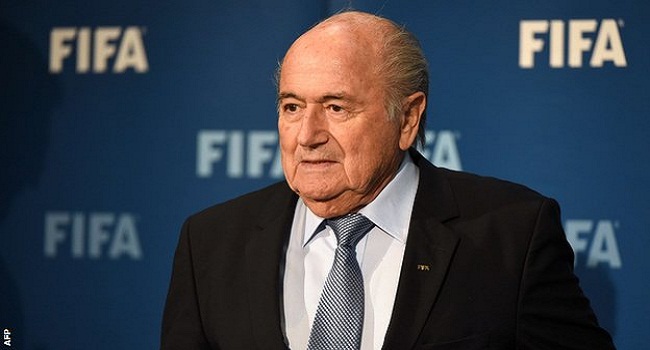
From filthy politics to Sportswashing at elite levels, here's what we've learned from the 'revealing' four-part documentary including Nigeria's murky involvement in FIFA's dark past.
FIFA Uncovered arrived on Netflix on Wednesday, November 9, 2022, just days before the opening match of the 2022 FIFA World Cup Qatar.
This year's winter edition will be the first-ever football showpiece to be hosted in a middle eastern country.
While football fans all over the world are excited to watch the FIFA World Cup 2022, the decision to host it in Qatar remains as controversial as ever, having been met with a series of criticism from a myriad of football fans.
Netflix's new documentary, which is split into four parts, gives an astonishing spotlight on the allegations of corruption that has tainted FIFA's image over the last decade.
The docu-series begins in 2015 when 14 members of FIFA's executive council were arrested on suspicion of corruption, which prompted a thorough investigation into how the host country is selected.
All four parts are now available to stream exclusively on Netflix, but here are 20 things we've learned so far from FIFA Uncovered. Brace yourselves!
#1 FIFA is so much more than a football organization

Primarily, the Federation of International Football Association (FIFA) is the international governing body of association football, beach football, and futsal.
Comprising over 200 countries, it is undisputedly football's global governing body.
However, from what we saw in the documentary, FIFA is so much more than its name depicts. In fact, the organization is more influential than you might ever have imagined due to its ability to influence multi economies across the world.
#2 Africa had a huge role in Sepp Blatter's FIFA Presidency
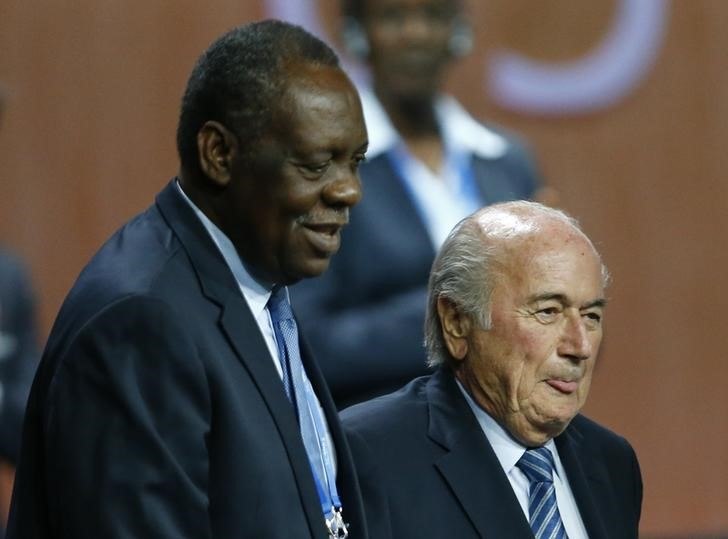
Blatter worked at FIFA, first as technical director - from 1975–1981, then as general secretary from 1981–1998, before his eventual election as FIFA president in 1998, succeeding João Havelange from 1998 to 2015.
But what most people might have not known is that Blatter's first success at the FIFA Presidential elections was largely because he promised to bring the World Cup to Africa.
His election to the presidency of FIFA over then-UEFA President Lennart Johansson occurred amidst so much controversy about the future of the sport.
Blatter was re-elected as head of FIFA in 2002, and was re-elected unopposed for another four years on 31 May 2007, even though only 66 of 207 FIFA members nominated him.
#3 Blatter was overwhelmed by the 'Power' of the FIFA Presidency

I was a little bit surprised myself, with the power that I was given, Blatter says with a grin on his face in an interview in Episode two of the documentary.
Sepp Blatter's rise to power was almost unstoppable, and when he got it, he became nearly immortal so much so his power in FIFA was seemingly absolute.
However, Blatter always sought to get rid of any friend or ally who posed a threat to his administration - this is evident after his fallout with his advisor Mohammed Bin Hammam, the then-president of the AFC(Asian Football Confederation) in 2009.
FIFA officials under Blatter's regime started to feel untouchable and Blatter himself began to get involved with external politics outside of the organization.
#4 Blatter saw his issues with Bin Hammam as a threat to his FIFA Presidency

Initially, Mohammed Bin Hamman was Blatter's greatest ally. But the former felt betrayed by his friend Blatter after promising to run for just two terms as FIFA president initially.
It turns out that Blatter had plans to stick around for far longer than agreed, forcing Bin Hamman, to reconsider his loyalty to Blatter.
Things got worse between the duo as Bin Hamman who was then contesting re-election as president of the AFC found his ally to be supporting his opposition, with Blatter working tirelessly to ensure Bin Hamman loses his seat, which he did eventually.
And following Blatter's third re-election as FIFA President in 2011, disgraced ex-CONCACAF(Confederation of North, Central America, and Caribbean Association Football) president - John Ward was ultimately dragged into another conspiracy and corruption scandal, alongside ex-president of the AFC, Mohammed Bin Hammam were both suspended on allegations of bribery and corruption.
That situation also put Qatar's 2022 World Cup bid in doubt.
#5 The Collapse of the ISL was the beginning of FIFA's financial mess
In Episode two, we learn that the collapse of the International Sport and Leisure (ISL) in 2001, caused serious financial issues for FIFA which was now ridden with debts of up to £153 million.
The ISL was established by former Adidas boss Horst Dassler, and was associated with FIFA, the International Olympic Committee, and the International Association of Athletics Federations.
In 2008, following a four-year investigation by prosecutors in the Swiss canton of Zug, six former ISL executives, including the former chairman Jean Marie Weber, were accused of a series of charges including fraud, embezzlement, and the falsification of documents.
Court documents released in 2012 show that two FIFA executives, former president João Havelange and Ricardo Teixeira, received 41m CHF (£27m) worth of bribes from ISL between 1992 and 2000 but only 3m CHF of these were repaid.
#6 Blatter never wanted Qatar to host the 2022 FIFA World Cup
Blatter never made it a secret that he never wanted Qatar to host the FIFA World Cup and was shocked when Qatar won the bid.
That was also the point where his relationship with Mohammed Bin Hamman also started to fall apart.
#7 Zen-Ruffinen was the first person to spot the financial irregularities in FIFA

Michel Zen-Ruffinen (born April 24, 1959) served as the general secretary of FIFA, the international governing body of association football from 1998 to 2002.
However, after initially presenting a report which put forward serious accusations against President Blatter, five of the seven vice presidents demanded that Blatter resign, but the Committee preferred that he submit a written explanation on all eight charges made against him.
Ultimately, Blatter fired Zen-Ruffinen as soon as he got re-elected as FIFA president in 2002.
#8 Sepp Blatter is a learner where Jack Warner was
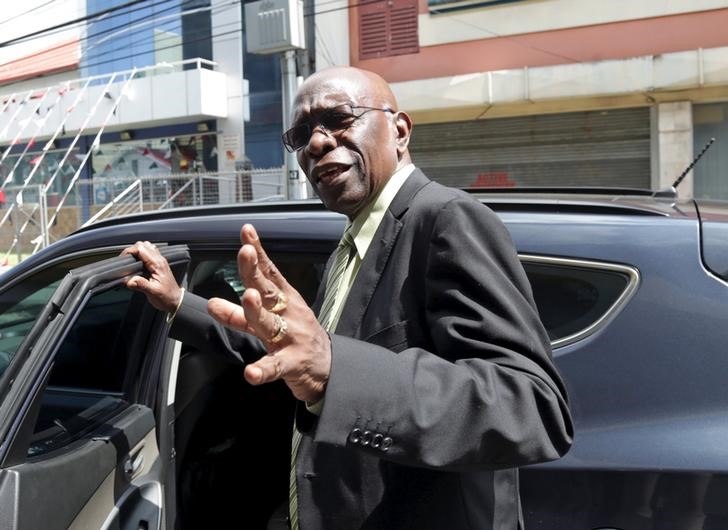
Jack Warner who is the disgraced former president of the CONCACAF was far worse than Sepp Blatter because his entire football legacy was courtesy of consistent episodes of corruption and bribery at the highest level.
In some ways, he was both a blessing and a course to Caribbean football.
#9 Nigeria sold its votes ahead of the 2018 and 2022 World Cup bid
In the documentary, it is revealed that Nigeria and Trinidad and Tobago delegates of the FIFA Executive Council both sold their votes ahead of the 2018 and 2022 World Cup bids.
This resulted in both members getting suspended from the organization temporarily.
#10 The FIFA Goal Project was a camouflage for corruption
The FIFA GOAL Programme was initiated by former FIFA President, Sepp Blatter for the benefit of national associations.
It is a tailor-made development and assistance programme designed to realize projects based on the specific needs of national associations.
However, the project which was supposed to be a huge legacy for the development of football across the globe was just another avenue for corruption as millions allegedly remain unaccounted for to date.
#11 Angola was instrumental in Qatar winning the 2022 WC bid
Just like Blatter's strategy to win the FIFA presidential elections for the first time, the Qatari's replicated the same following their campaign speech in Angola, having agreed to sponsor the African Congress of Football in Angola, which to their surprise, was a game-changer in their bid to host the 2022 FIFA World Cup.
#12 Nigeria, Ivory Coast and Cameroon allegedly sold their votes for $1.5million each in support of Qatar 2022
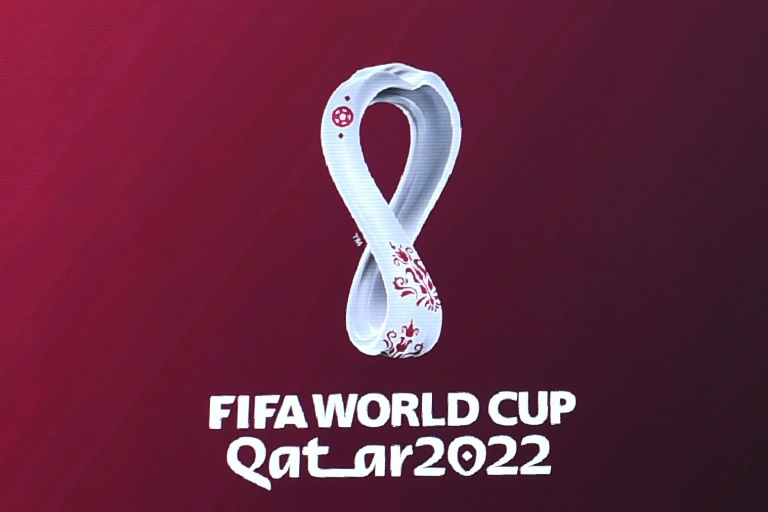
It was again revealed in Episode 3 of the documentary by FIFA Whistleblower Phaedra Al-Majid that three members of the FIFA Executive Council - former CAF President Issa Hayatou (Cameroon), Jacques Anouma(Ivory Coast), and Amos Adamu(Nigeria) were initially offered $1 million by the CEO of the 2022 FIFA World Cup Qatar Local Organizing committee Hassan Al Thawadi.
But further negotiations saw the offer increased to $1.5 million which was now given to each of the three members in exchange of their votes ahead of Qatar's bid.
Phaedra says she never saw the money but also states it was made very clear the money was supposed to go into football in each of their countries.
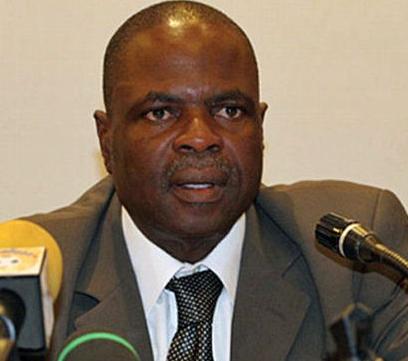
Her revelation comes after she was unexpectedly fired from her job, having been given 3 days to leave the state of Qatar.
Phaedra was nicknamed the 'Qatar Whistleblower' and her allegations were publicly refuted by Sepp Blatter, with threats on social media following after.
Eventually, she was forced to sign an affidavit retracting her allegations, and Hassan himself strongly denied Phaedra's allegations claiming there are facts that prove that her allegations are false.
#13 Michel Platini did not vote personally for Qatar
According to the former UEFA President, the then France president, Nicolas Sarkozy, sold his vote to Qatar ahead of their World Cup bid.
#14 Platini's vote for Qatar allegedly triggered the Qatari purchase of Paris St Germain
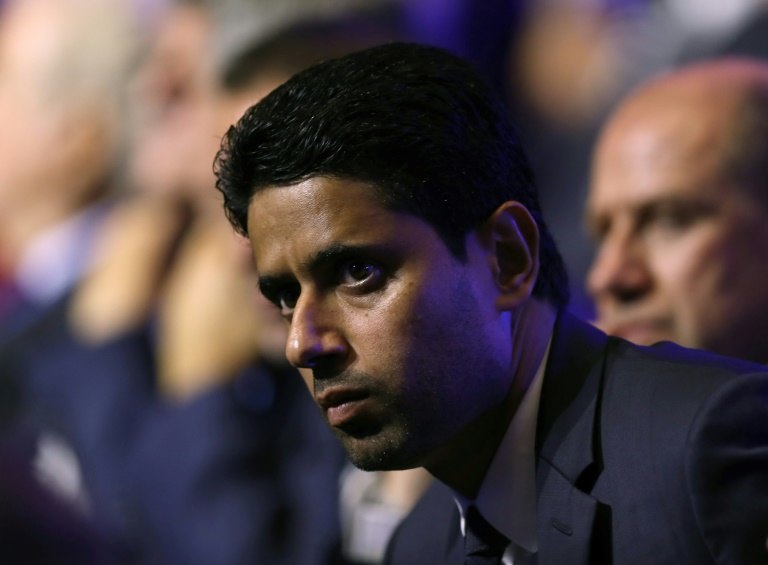
Shortly after Platini voted for Qatar, the Qatari Estate Fund bought Ligue 1 club Paris St Germain.
That period was also when beIN Sports which is the official broadcaster for football in Qatar bought the TV rights of French football for huge money.
#15 Qatar still deny all allegations of bribery following their successful World Cup bid
Despite, widespread criticisms and allegations the representatives of the State of Qatari still deny all allegations levelled against them to date.
#16 Chuck Blazer was only a devil disguised as an angel

Chuck Blazer was certainly no hero, despite his attempts to look like a 'whistleblower' in front of the world media.
The CONCACAF secretary-general had reported Jack Warner to the FIFA Ethics committee over a bribery deal in 'Port of Spain' amid Mohammed Bin Hammen's ambition at the AFC presidential elections.
However, Blazer was eventually found out by the United States Justice Department after they had compiled damning evidence of money laundering against him.
Blazer then cooperated with law enforcement to arrest 14 more members of the FIFA Executive council in 2015 FIFA Corruption Case.
#17 South Africa paid a $10 million bribe to Jack Warner and Chuck Blazer

In the documentary, it's also revealed that Chuck Blazer pleaded guilty to having received a bribe from South Africa in the tune of $10 million alongside Jack Warner to vote for the South Africans ahead of their 2010 World Cup bid.
Warner still denies those claims till date but the $10 million was paid in the name of the 'diaspora fund'.
#18 May 27, 2015, will never be forgotten in FIFA's history
The FIFA Corruption Case finally became a global spectacle after the 65th FIFA Congress Elections and 14 members of the FIFA Executive council were arrested in Switzerland on May 27, 2015, including the new CONCACAF president Jeffrey Webb who was by the way, far worse than Jack Warner - and he only lasted as president for a few days.
#19 FIFA can't be absolutely rid of Corruption

In summary, it would be extremely difficult for an organization such as FIFA to be entirely rid of the corruption cankerworm, due to the level of politics involved.
We learned that the World Cup is what gives the FIFA president leverage over so many countries because of the mouth-watering amount of money involved.
For an organization with that much power, without thorough oversight from a third party apart from the Ethics committee, it would be a miracle if we don't hear of such corruption scandals in the future.
#20 Sepp Blatter remains the 'godfather' of Football

In the end, Joseph Sepp Blatter remains the godfather of football. Having served as president for 17 years, he was a true 'Master of Politics' and more of a monarch during his time as FIFA president.
Sepp Blatter and Michel Platini have never been accused of a crime by the US Department of Justice and both have been cleared of any criminal wrongdoing, by a Swiss court relating to a 2 million Franc 'disloyalty payment'.
However, Blatter remains banned from football until 2028.
Read Full Story

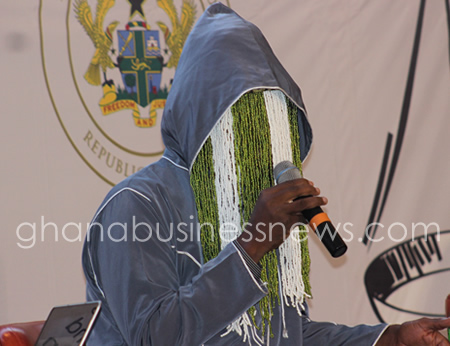





















Facebook
Twitter
Pinterest
Instagram
Google+
YouTube
LinkedIn
RSS